@author Meng Wang
@email mwang106@ur.rochester.edu
@create date 2024-02-22 15:25 @modify date 2024-02-23 22:09
@desc Assignment 1: Distributed Knapsack Problem, Parallel and Distributed Systems CSC458 SPRING 2024
Submission includes:
- Your parallel version of knapsack, see ./src/knapsack.cpp
- A readme explaining your code. navigate.
- A text file called averages.txt (results obtained on cycle2, serial are marked threads=0) that gives the average execution time of your parallel version on 1, 2, 4, 8, and 16 threads as well as the provided serial version on each input.
- (458) Your values of the number of threads needed to achieve the maximum speedup for each input, as well as the graphs of the speedup vs the number of threads on each input. navigate.
The zip file should be structured as follows:
.
|-- inputs/ # inputs for the knapsack problem
|-- res/ # results of the knapsack problem
| `-- *.png
`-- src/ # dir for source code
`-- knapsack.cppto compile the code, run the following commands:
$ make # default compilation
$ make release # compile with -O2 optimizationBinaries will be located in ./build/apps/src/ directory. You may soft link it to ./bin/ directory for easier access. The program takes the first cmdline argument as num_threads.
- If
num_threads=0or not provided, run the serial version. num_threads>=1, run the parallel version withnum_threadsthreads.
# run SERIAL version, two are equivalent.
$ ./build/apps/src/knapsack < inputs/1.txt
$ ./build/apps/src/knapsack 0 < inputs/1.txt
# run PARALLEL version, with n_threads as arg
$ ./build/apps/src/knapsack 1 < inputs/1.txt
$ ./build/apps/src/knapsack 2 < inputs/1.txtThe basic DP algorithm constructs a DP table
0 1 . w . c
i_0 |a| | |a|.| |
i_1 | | | |b|.| | # obviously b only dep on the two a's
... | | | | |.| |
i_N-1 | | | | |.| | # the same applys to all (prev, cur) row pairsTherefore cur_row dependents on the prev_row only, where there are:
- only reads on the
prev_row - only writes on
cur_row - depedency
cur_row->prev_row,next_row->cur_row
We can swap cur_row and prev_row to simulate rolling two consecutive rows in the DP table in a iterative manner. This can optimize space to
We can parallelize this algorithm by distributing non-overlapping tasks column-wise to threads. For all thread t, it only receives a set of tasks
Pseudo-code is as follows:
func knapsack_parallel(n: int, capacity: int, num_threads: int):
barrier sync_point(num_threads)
// solves range [l, r) for all n items,
// after each row is done, hit barrier to sync between threads
func knapsack_worker(int l, int r):
// initialize the first row and sync
init(first_row)
sync_point.arrive_and_wait()
// iterate through each row in second-to-last rows
// and wait for current row to finish
for cur_row in [1, n-1]:
for col in [l, r-1]:
cur_row[col] <- update(based_on: prev_row, col)
sync_point.arrive_and_wait()
// distribute tasks and wait for all threads to finish
parition_tasks(threads[], knapsack_worker)
join_threads()
return opt[n-1][capacity]| input | best n_threads |
speedup curve |
|---|---|---|
0.txt |
1 | 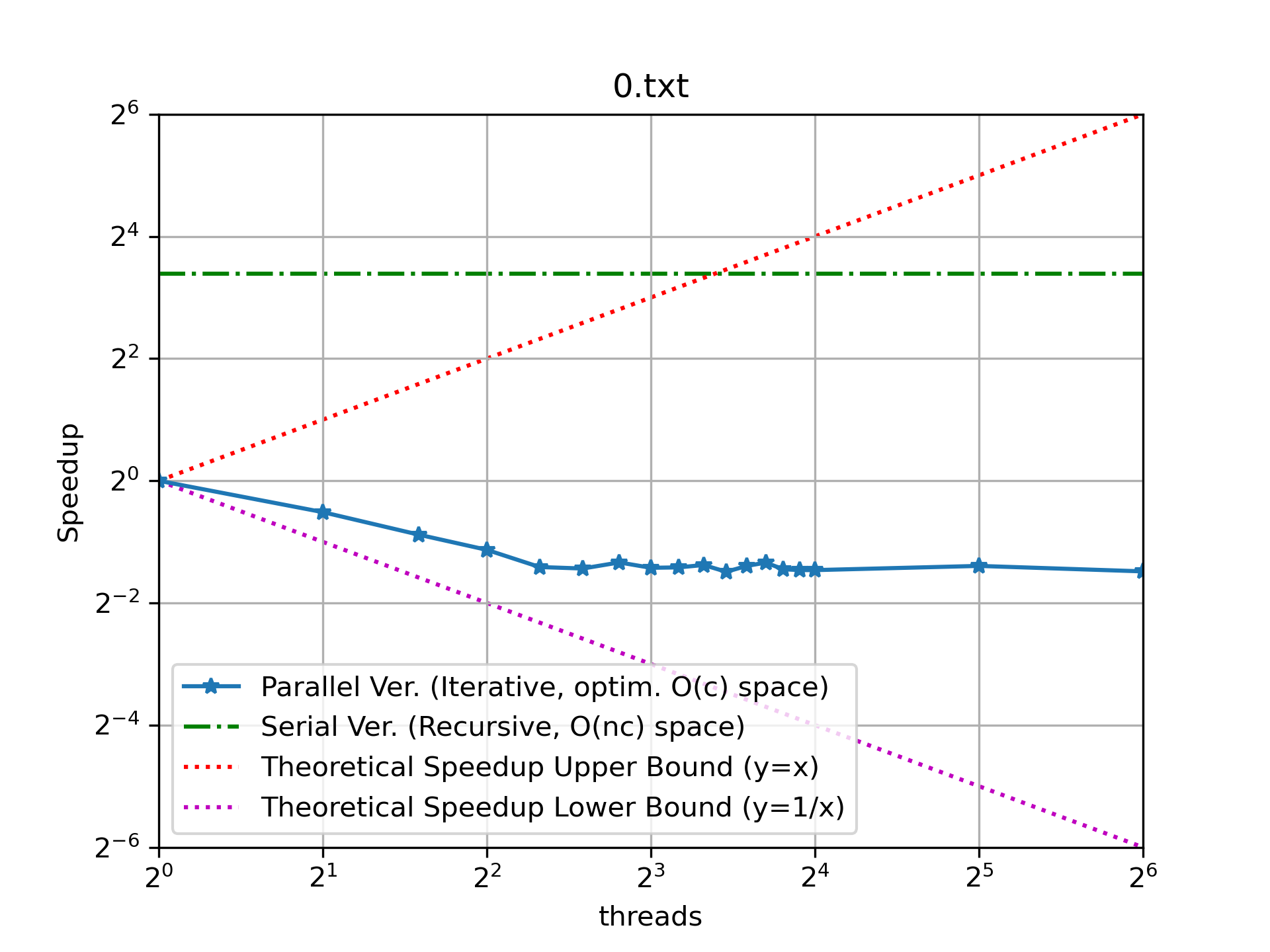 |
1.txt |
1 | 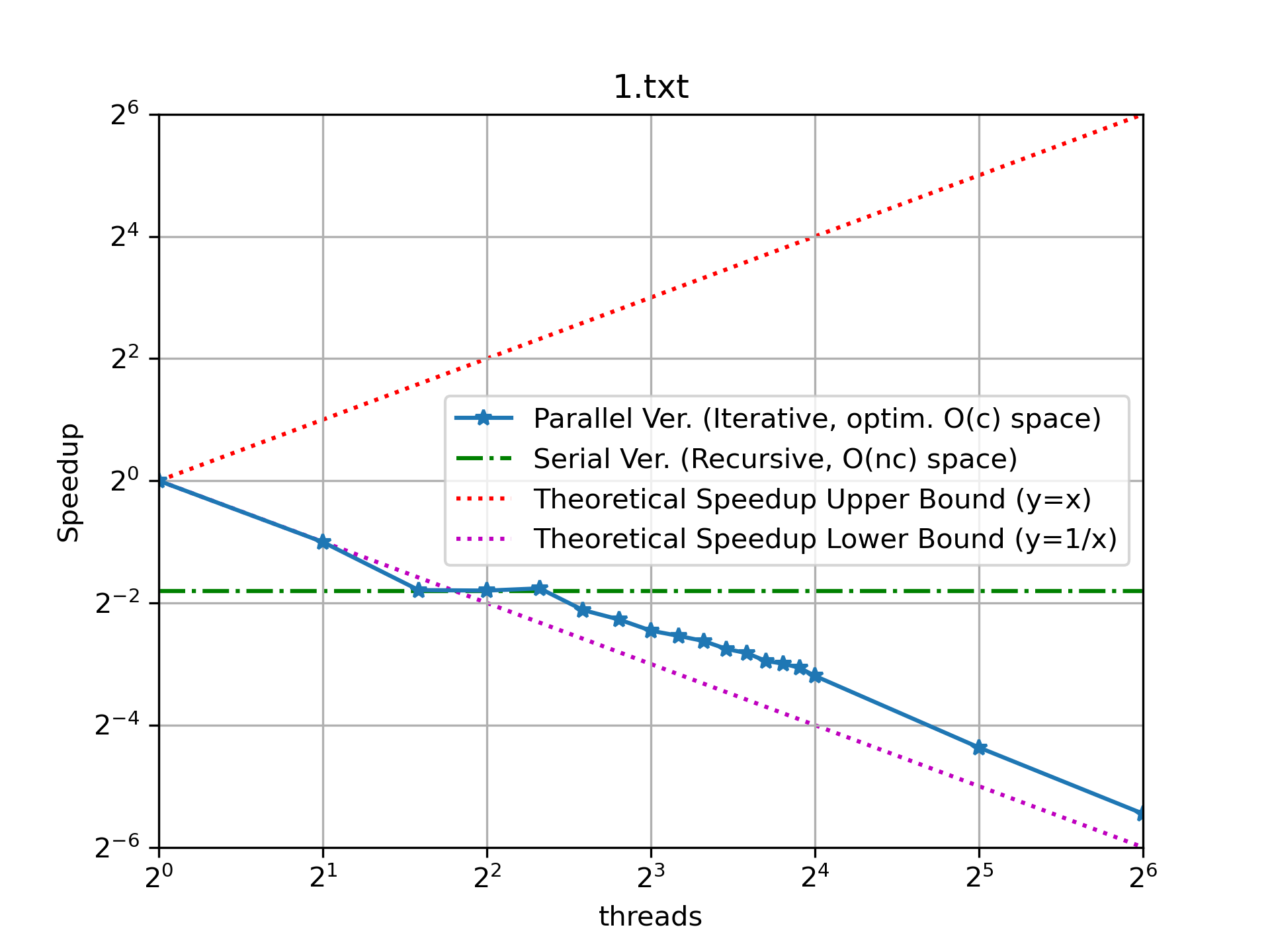 |
2.txt |
15 | 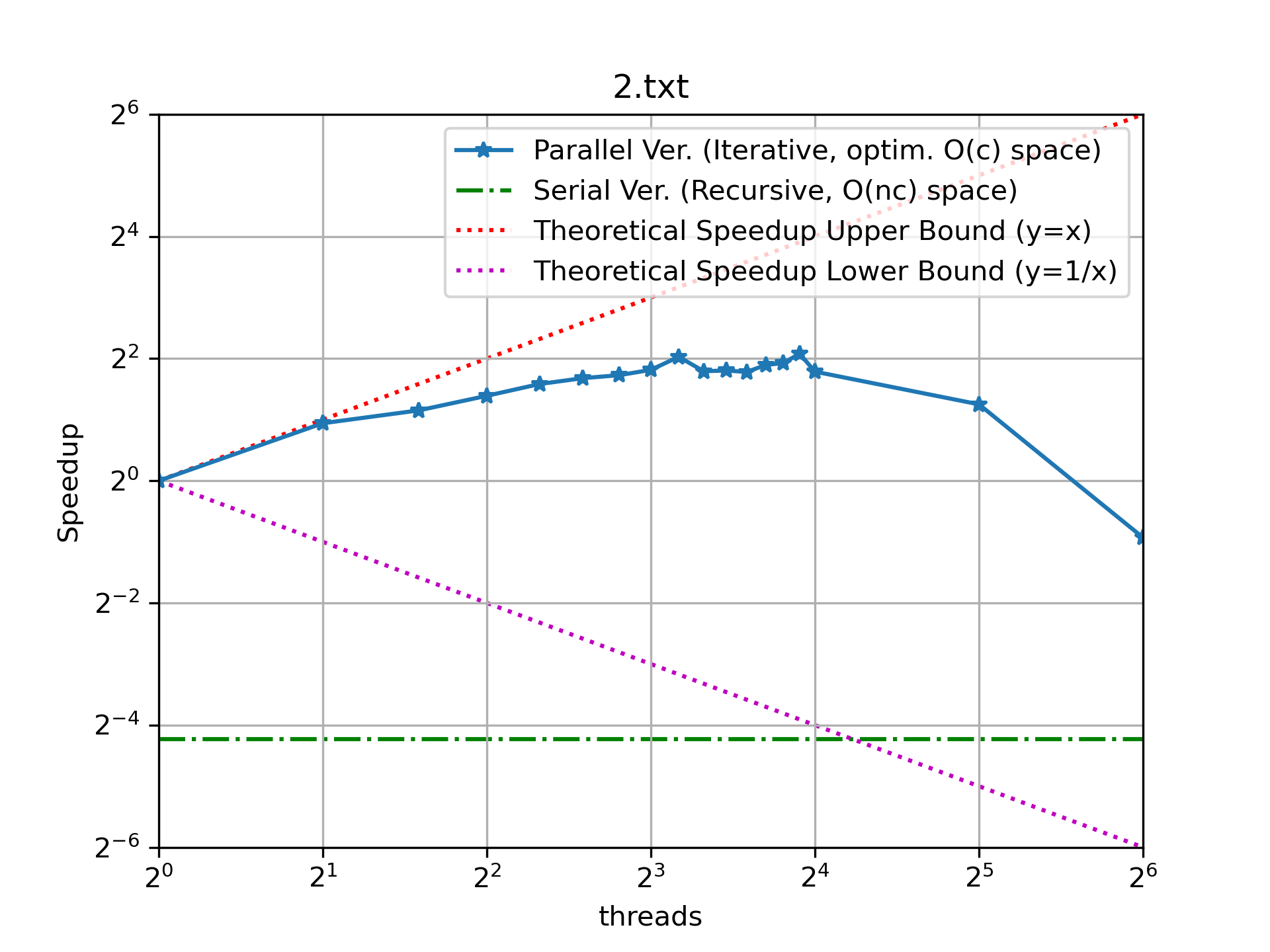 |
3.txt |
5 | 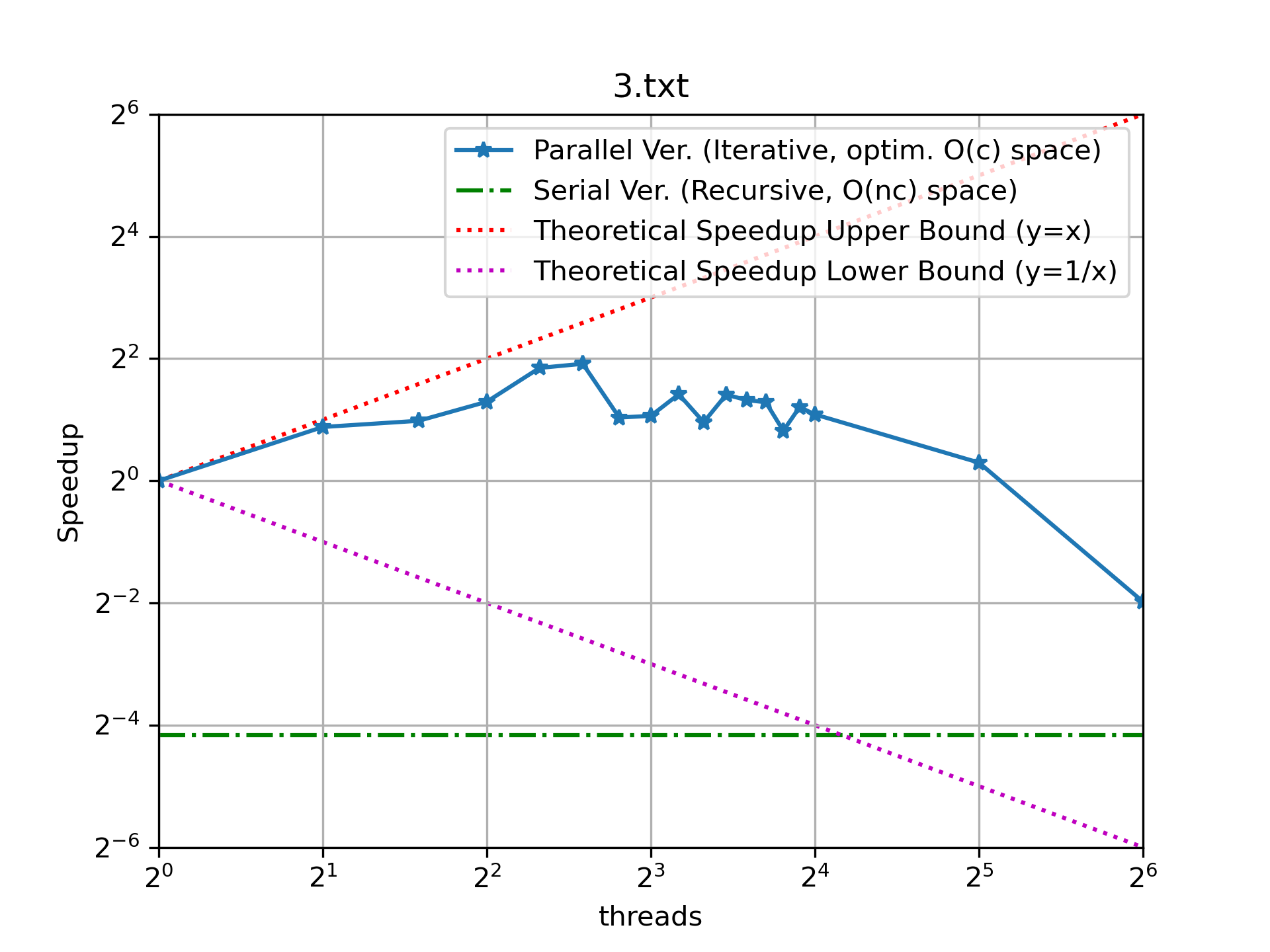 |
4.txt |
10 | 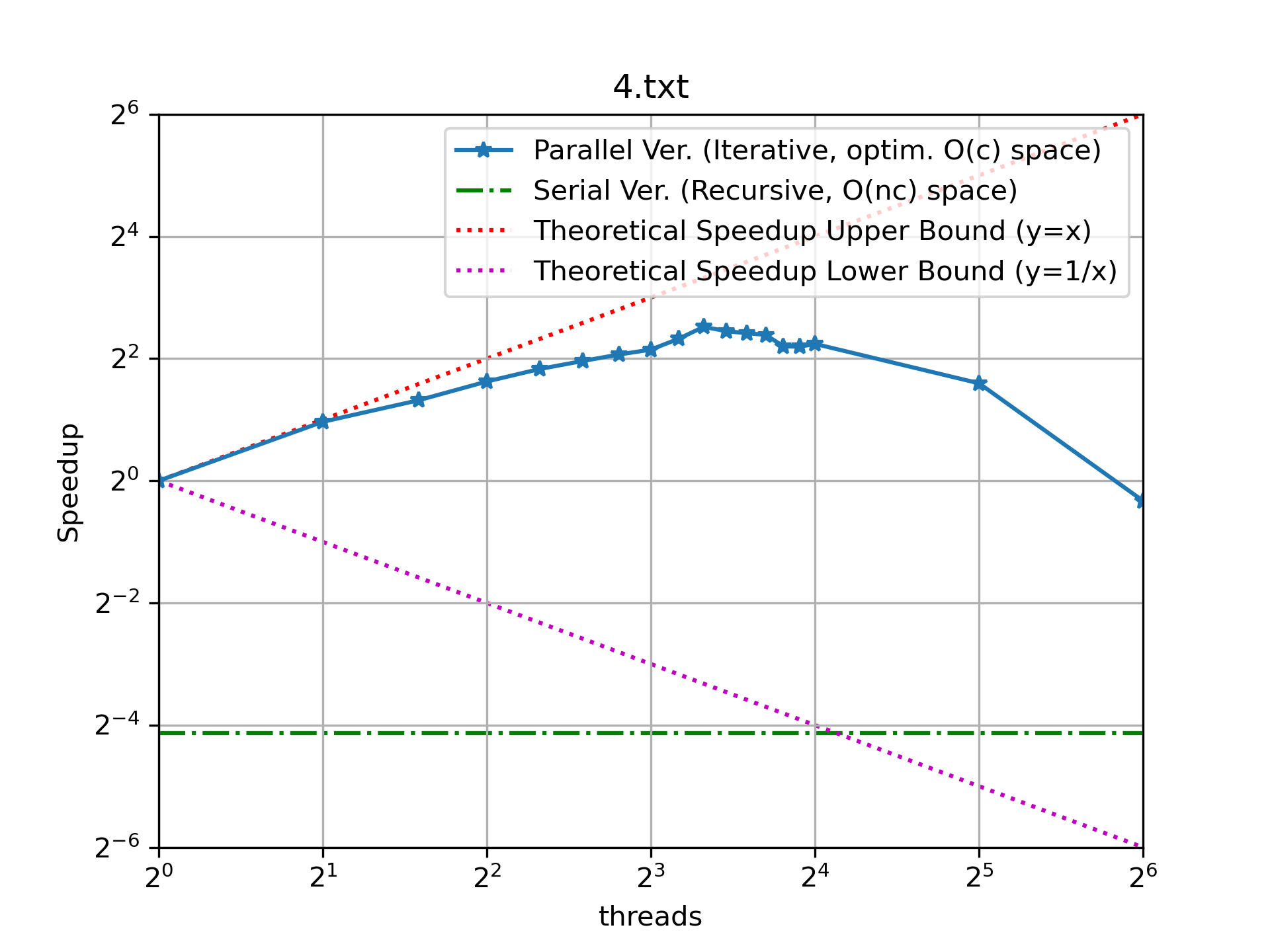 |
5.txt |
9 | 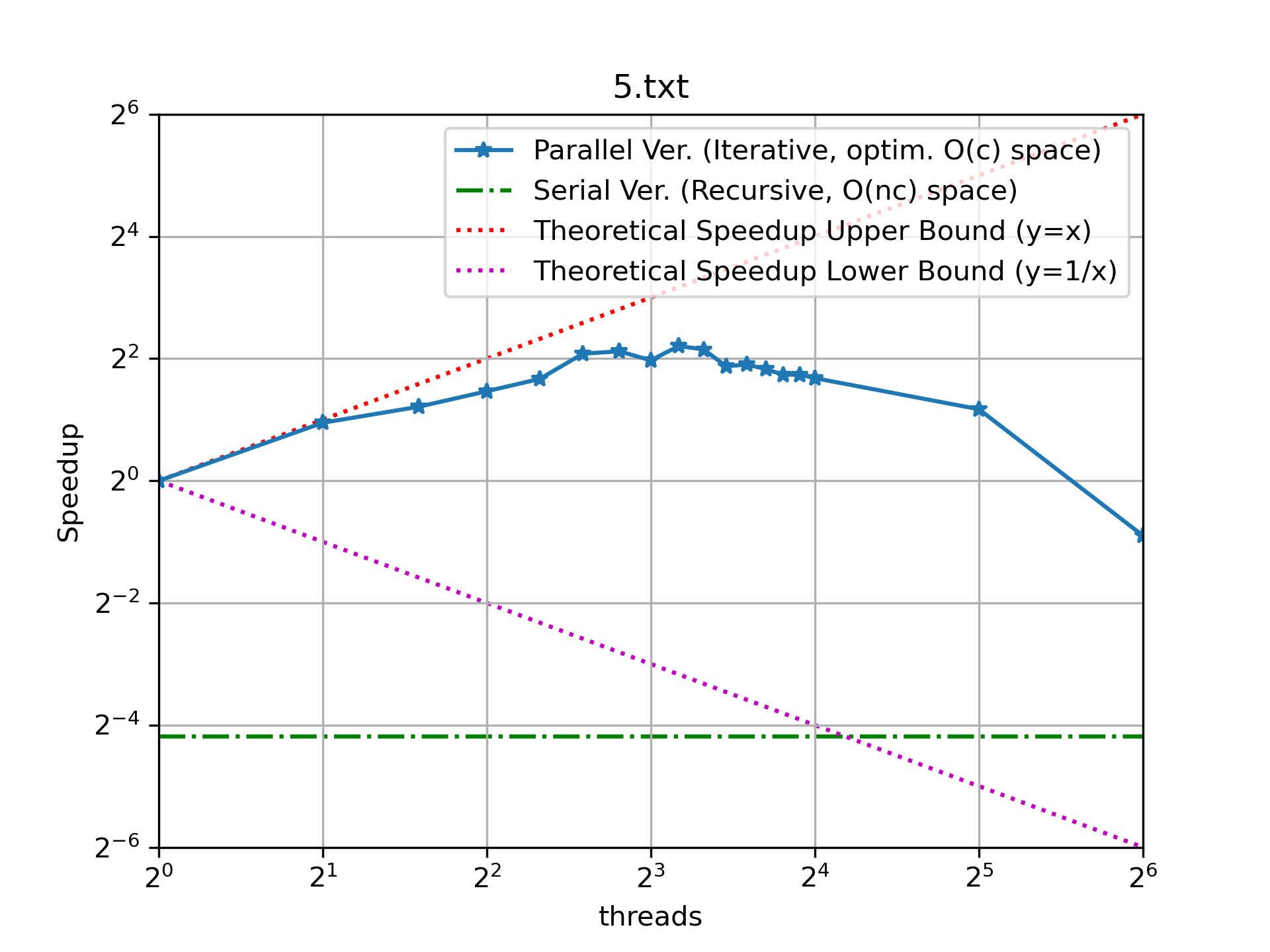 |